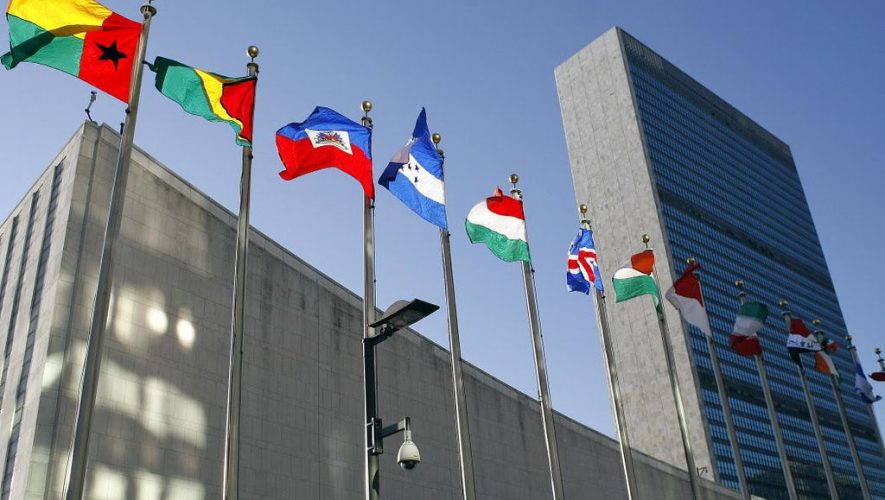Success in the era of globalization is often presented as requiring total economic liberalization, or the lessening of government regulations to promote private entities. Dr. Thomas Friedman argues that for countries to develop rapidly, governments must adopt the “golden straitjacket,” where states make free-market reforms to join the broader economic system. Countries are at the whim of the “electronic herd,” which consists of international investors who withdraw capital from states that do not maintain economic liberalization.
Because of principles like the golden straitjacket, the problems of rapid and total economic liberalization are ascribed to globalization. In reality, globalization is an overwhelmingly positive force that promotes higher standards of living globally. If developing countries and the “electronic herd” reject the rhetoric that development requires total liberalization, globalization can continue to raise standards of living.
Globalization’s greatest disadvantages are often examples of benefits being inequitably distributed. The most obvious example is that wealthy countries have had greater economic growth than developing countries, despite all countries being relatively better off. The push for developing countries to adopt globalization-friendly economic policy—such as rapid privatization, subsidy cuts, and reductions in domestic credit—has resulted in this skewed growth.
“The unequal distribution of benefits between countries results from global rhetoric that unfairly advocates for rapid and total market liberalization.”
As can be seen in Brazil, India, and China, when developing economies have flourished post globalization, their initial growth has surpassed that of developed states. That said, this growth came from rejecting the notion that neoliberal economic policies lead to development. On the contrary, government policies fueled growth by prioritizing diverse domestic production over economic specialization.
While rapid liberalization is often credited for economic growth in developing countries, freeing up private sector activity is often more effective. This very conflation can be seen in India; many analysts credit the 1991 economic boom to liberalization. Reforms—such as the reduction of some business taxes and increased access to imports—birthed an industrial establishment, fostering growth through gradual liberalization.
Further, comparing the process of economic liberalization in China and Russia indicates that the unequal distribution of benefits between countries results from global rhetoric that unfairly advocates for rapid and total market liberalization.
China liberalized slowly with the goal of creating a manufacturing economy while shielding domestic firms. Shenzhen’s establishment of special economic zones, where businesses would benefit from fewer regulations, allowed the city’s economy to bypass the golden straitjacket. Chinese people were unburdened of the risks associated with economic autonomy and benefited from the growth spurred by the government’s foreign investment. The economic boom resulted in substantial infrastructure development that established cities and manufacturing plants that sustained economic growth. Low tariffs allowed corporations like Nike to outsource to China at a fraction of the cost of operating domestically, creating new jobs with higher wages.
In contrast, Russian liberalization, led by economist Jeffrey Sachs, used rapid privatization and macroeconomic stabilization. Sachs’ aggressive policy cut subsidies, devalued the exchange rate, established a positive real interest rate, and reduced domestic credit expansion. His process is still criticized not only for its rapid and harsh application, but also for using virtually the same policies implemented in Poland, Bolivia, and elsewhere. Sachs failed to account for the USSR’s complex social fabric—overlooking assets including high levels of education and healthcare access—and misrepresented the level of political polarization between those who wanted gradual and immediate democratic reform. In effect, he overlooked the large sect of the population that preferred socialist structures.
The distinction between these cases is evident in the timeline for liberalization (decades versus months) and in considering the needs of individual countries. While free-market reforms are vital to take advantage of globalization, rapid economic liberalization should not be revered. Developing countries should instead be encouraged to adopt policies that account for the nuances of their economies and societies.
“The innovation of the private sector has provided new employment opportunities for impoverished workers in developing countries.”
Benefits are also unequally distributed in relation to multinational corporations (MNCs) and developing countries. Economic performance and global influence are tied to what a country produces. Those that specialize in commodities and raw materials become stuck in the periphery of the world economy. This makes them vulnerable to global price fluctuations and creates a class of domestic elites, resulting in a poverty trap that further inhibits growth. Benefits are unequally distributed because the party with more bargaining power will always gain more, while countries in the commodity trap are at the whim of global markets.
Conversely, globalization is responsible for promoting higher standards of living globally. The innovation of the private sector has provided new employment opportunities for impoverished workers in developing countries. MNCs can achieve lower prices, higher profit margins, and more diverse product ranges when they outsource production to developing countries with the lowest possible wages and least overall regulation.
While wages in developing countries are considerably lower than those in countries like the United States, research has shown that MNCs often pay their factory employees competitive wages—on average a hundred times more competitive than offered elsewhere.
New York Times writers Nicholas D. Kristof and Sheryl WuDunn echo the sentiment that MNCs offer an escape from poverty for unskilled workers who would otherwise be unemployed or compensated less. While MNCs are often criticized for working conditions, many employees seek the positions because of the higher wages. Kristof and WuDunn argue that regulations should focus on safety and environmental regulations rather than labor standards, as reform such as enforcing higher wages would depress employment.
While outsourcing labor creates higher-paying jobs in developing countries, developed countries benefit from lower labor costs that slash prices and increase consumption.
In absolute terms, globalization has improved people’s lives in every country. It has brought economic growth and better jobs to developing countries while providing increasingly high quality, inexpensive goods to developed countries. The lower cost of living has contributed to the generally low inflation and interest rates of the modern era. Free trade has also enabled technology transfers from industrialized countries to developing ones, helping to bridge the knowledge gap.
To say that globalization has an overall negative impact on the world would be overlooking these improvements. Critics of globalization often argue that divergence in the rate of growth between developed and developing states began in 1980, around globalization’s inception. However, between 2002 and 2008, while unadjusted global inequality continued to rise, population-adjusted inequality dropped by 1.4 points due to the rapid development of countries like China and India.
As free trade improves the quality of life for people around the world, those in poor countries would not be absolutely better off, but relatively better off. Therefore, the globalization paradox is a question of absolute versus relative gains: Should we maximize everyone’s gains, or must we ensure that developed and developing countries gain to the same degree?
Harvard Professor Dani Rodrik argues that no economist is against globalization. Rather, new institutions and compensation mechanisms will render globalization more effective, fair, and sustainable. If development discourse transitions away from promoting a single, rapidly adopted, total-free-market model that ignores social and economic nuance, the electronic herd may stop enforcing the golden straitjacket, allowing globalization to continue promoting higher standards of living everywhere.
“Globalization is a tremendously positive force,” Rodrik says, “but only if you are able to domesticate it to work for you rather than against you.”



